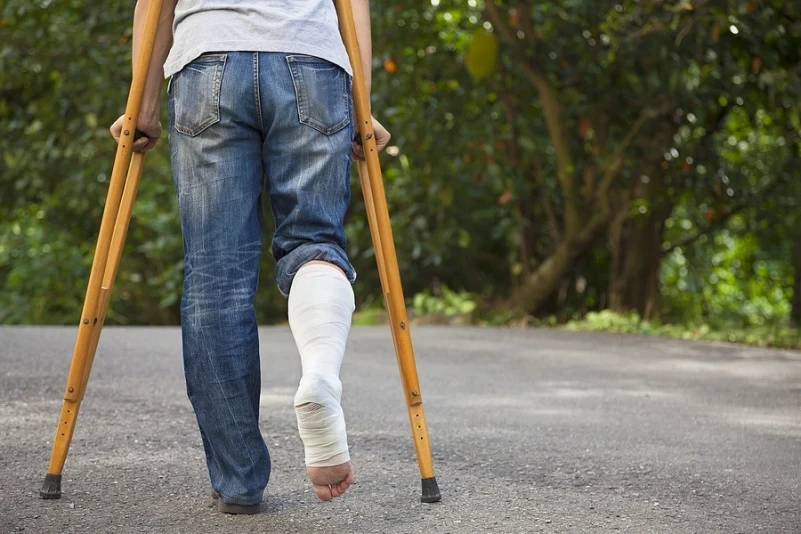Returning to the Job After an Injury in Palm Harbor: What Employees Should Know

Recovering from a workplace injury is rarely a straightforward process. Beyond medical treatment and physical healing, there are practical and legal considerations to address before you step back into your role. In Palm Harbor, injured employees may face challenges such as adjusting to work restrictions, navigating workers’ compensation requirements, and protecting their rights during the return-to-work process. Understanding your responsibilities and your employer’s obligations can help you make a smoother and safer transition back into the workplace.
Confirm You Are Medically Cleared to Return
Your health comes first. Before you return to work, you should have clear approval from your treating physician or specialist. This medical clearance may come with specific restrictions, such as avoiding heavy lifting, limiting repetitive motions, or working reduced hours. It is important to follow these restrictions closely. Pushing beyond your limits too soon could result in setbacks or worsen your injury.
Keep in mind that if your injury was work-related and you have an open workers’ compensation claim, your doctor’s recommendations will likely be documented for your employer and the insurance company. This helps ensure that your job duties match your physical abilities during recovery.
Understand Your Workers’ Compensation Benefits
If your injury happened at work, workers’ compensation in Florida may cover medical expenses, wage replacement, and rehabilitation services. However, benefits are not automatically guaranteed. You must report your injury to your employer within 30 days and follow all medical and procedural requirements.
When you return to work, benefits may change. For example, if you come back on light duty at reduced pay, workers’ compensation may continue to provide partial wage replacement. Knowing how this transition affects your benefits can help you avoid financial surprises.
Discuss Modified Duties or Light Duty Options
Florida law encourages employers to offer light duty assignments when possible. These roles are designed to accommodate your injury while allowing you to remain employed. Common modifications include:
- Assigning tasks that avoid heavy lifting
- Adjusting schedules to allow for medical appointments
- Providing ergonomic equipment or assistive devices
- Relocating your workspace to reduce physical strain
If your employer offers a light duty role, they must ensure that it aligns with your doctor’s restrictions. You also have the right to decline work that goes beyond your physical capabilities, but this decision should be supported by medical documentation to avoid disputes over benefits.
Know Your Rights Against Retaliation
It is unlawful for an employer to retaliate against you for filing a workers’ compensation claim or for taking time off due to a legitimate workplace injury. Retaliation can take many forms, such as termination, demotion, reduced hours, or unfavorable work assignments. If you suspect retaliation, you may need to speak with a personal injury or employment lawyer who understands Florida workplace laws.
Communicate Clearly With Your Employer
Returning to work after an injury requires open and honest communication. You should inform your employer about your recovery progress, provide updated medical notes when required, and discuss any ongoing limitations. Document all communications in writing when possible. This record can be useful if disputes arise about your ability to perform certain duties or your eligibility for benefits.
Prepare for the Emotional Transition
Going back to work after an injury is not only a physical adjustment but also an emotional one. You may feel anxious about reinjury, frustrated by limitations, or pressured to perform at your previous level. Recognizing these feelings is important. If needed, consider seeking support from a counselor, a support group, or trusted colleagues who understand your situation. Employers sometimes offer Employee Assistance Programs (EAPs) that can provide resources during this transition.
Know When to Seek Legal Guidance
Most employees can return to work without major disputes. However, there are situations where legal help is important, including:
- Disagreements over work restrictions or light duty assignments
- Sudden termination after filing a workers’ compensation claim
- Denial or reduction of benefits without proper explanation
- Unsafe working conditions that could worsen your injury
A personal injury attorney familiar with Palm Harbor cases can help you understand your rights, negotiate with insurance companies, and represent you if your case becomes a legal dispute.
Take Steps to Prevent Reinjury
Even after you are cleared to return, you remain at higher risk for reinjury, especially if your work involves physical labor. To reduce this risk:
- Follow your doctor’s ongoing advice and attend follow-up appointments
- Use protective equipment provided by your employer
- Avoid shortcuts that could compromise safety
- Ask for help when tasks exceed your physical limits
Being proactive about safety benefits both you and your employer, as it helps maintain productivity and avoids further medical costs.
Conclusion
Returning to work after an injury in Palm Harbor involves balancing your health needs with workplace expectations. By securing medical clearance, understanding your benefits, maintaining open communication, and knowing your legal rights, you can reduce stress and focus on a safe and productive transition. Every injury and recovery journey is different, so be sure to rely on trusted medical and legal guidance tailored to your specific circumstances.
